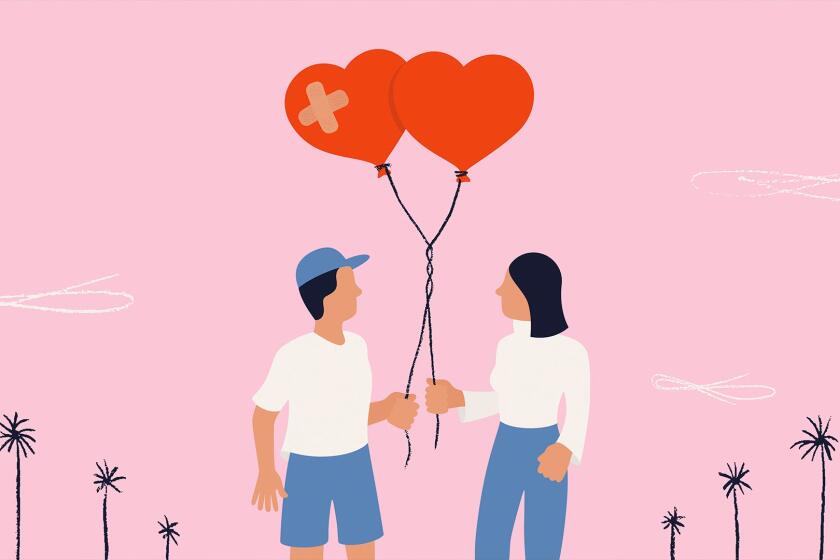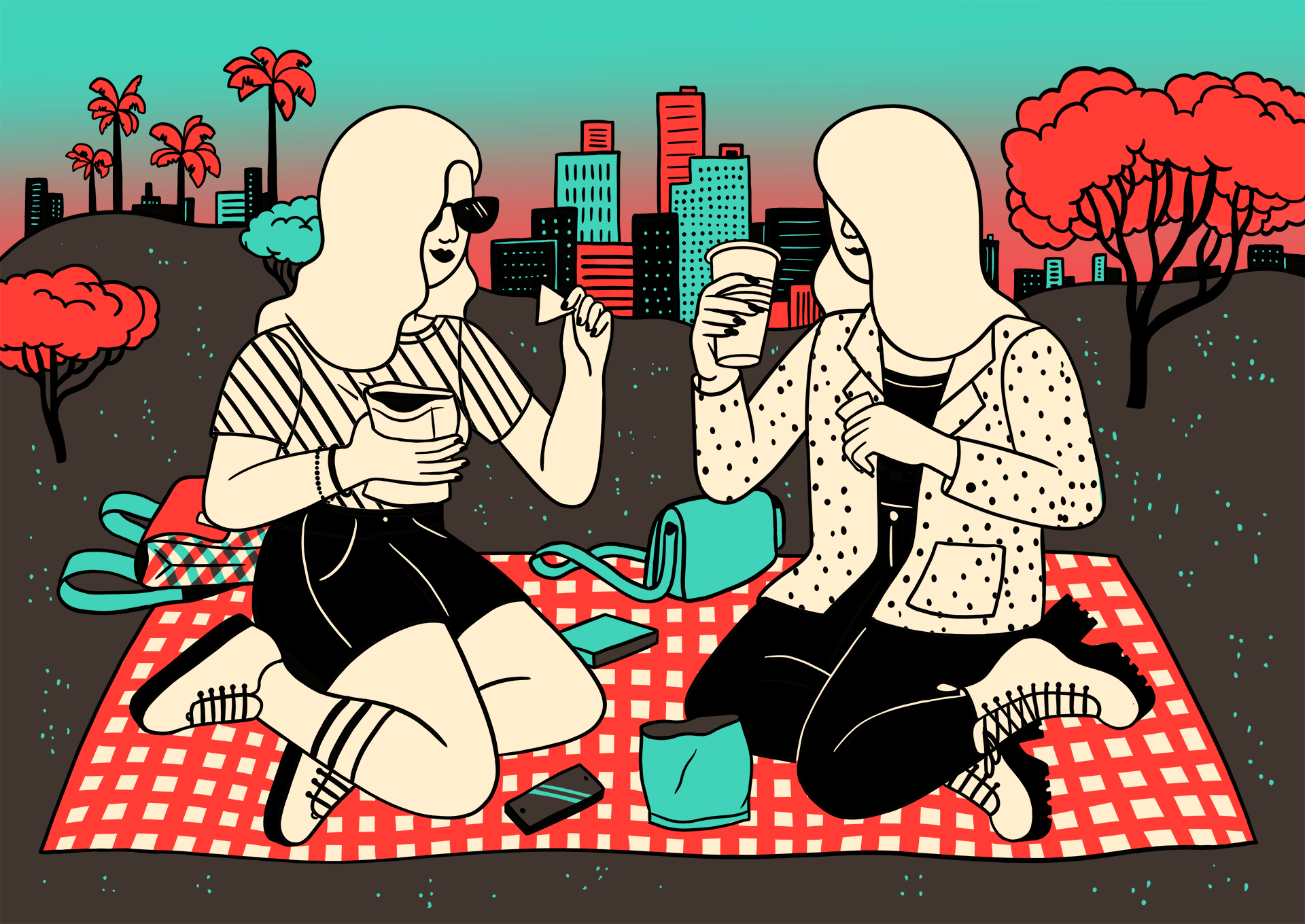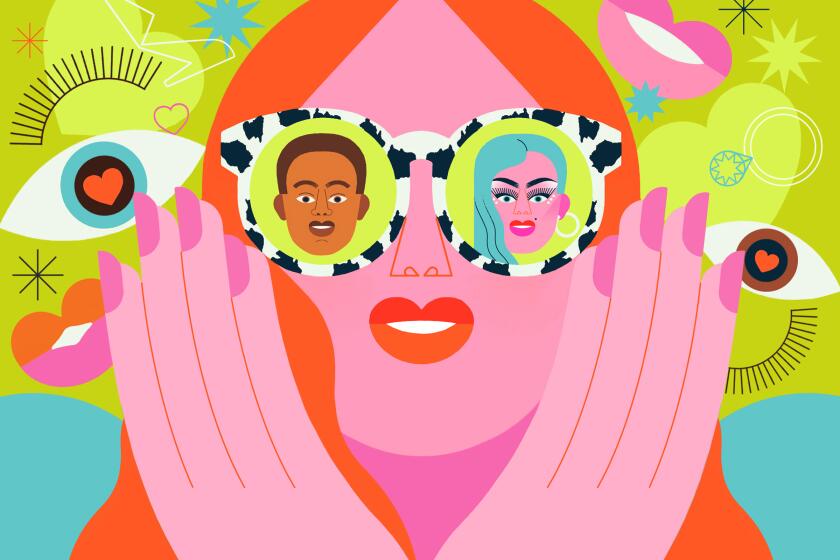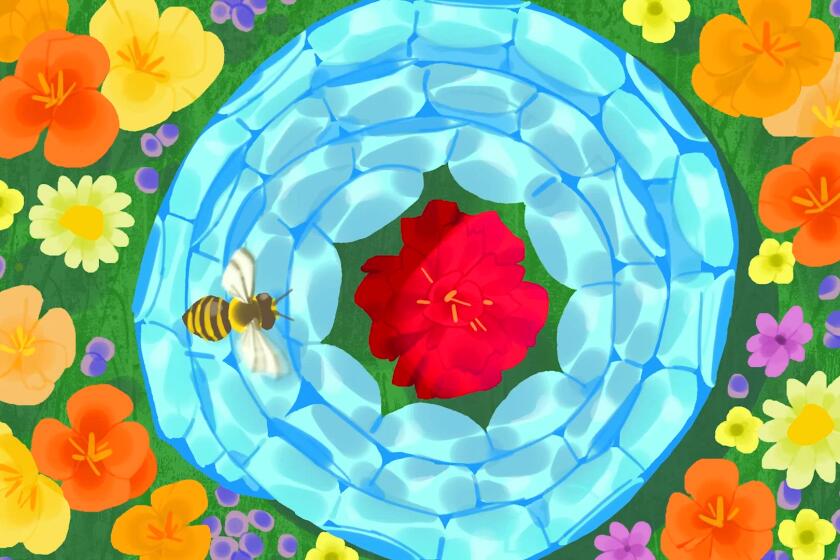L.A. Affairs: I fell for a bad-boy chef. Then the recipe soured
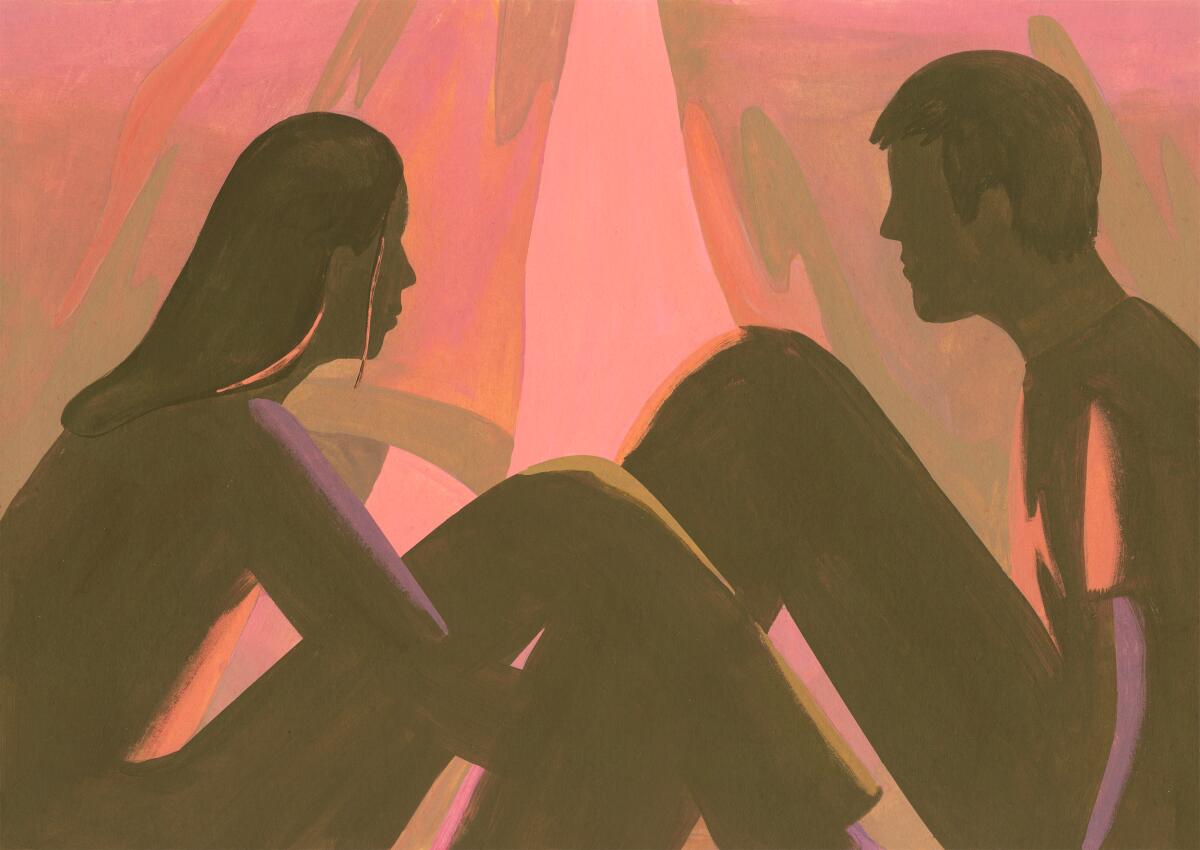
- Share via
“Why are you crying?” my husband asked me. I had just finished watching “The Bear,” the Hulu show that undoubtedly resonates with chefs but simultaneously must pain the women who love or loved them.
With a tearful smile, I excused myself to the backyard where I lay in the grass and let the unseasonably humid Valley weather transport me to another time in my life.
I was a grad student in psychology. The guy I started seeing was a French-trained chef. We were doomed from the start, and our mutual masochistic ways should have been the first clue. We were two workaholics with a shared love for tragedy. With music, books, art, we always leaned toward anguish. In my mind, we were Michelin-star-crossed lovers in fair Los Angeles. We were Romeo from the South Bay and Juliet from the Valley.
I’m not the type of Angeleno who embraces being alone. Don’t get me wrong — I really like me. However, I am much more comfortable being part of a “we.”
We met as most modern couples do — on an app. After the standard surface-level exchanges, we started to talk on the phone. Hours rolled by as our deeply meaningful conversations around beliefs, experiences, hopes and dreams effortlessly continued. Punctuated by flirtatious overtures and prolonged good nights, we planned for our adventures together while watching Anthony Bourdain episodes across the 405 Freeway from each other.
The cadence of his voice as he inhaled and exhaled cigarette smoke became a familiar and comforting pause.
After a brief phone affair, we met in person over pasta and wine in Brentwood followed by gin and tonics at my apartment in Westwood.
I had suggested a delightful but less-than-cool family-owned Italian restaurant as a covert litmus test of snobbery. He passed with flying breadsticks, and we talked endlessly about the value of tradition in food.
He wanted to open a Southeast Asian fine-dining restaurant as a love letter to his family and an eff-you to those people who viewed Asian food as a hangover cure.
I loved listening to him muse about his plans. He spoke with intense passion backed up by encyclopedic knowledge. I found his diatribes familiar in the ways previous flings with med students had been — expert and passionate. However, unlike those interactions, he valued my opinion and experience related to his world as well as my own.
We were equally punch-drunk by each other’s intellect.
When I got around to opening the message, mainly to clear the notification from my phone, I was surprised. Then she asked me on a date. I had to say yes.
We fell in love instantly, but those feelings arrived with a heaping dose of existential dread for me and reactive self-medication for him. My life trajectory was stable and plotted. His was unreliable and in constant motion.
I felt stuck in my identity and plan. He offered an unpredictable and exciting alternative. We would regularly dream about moving to Uruguay and opening a bookshop and bar by the beach. Sometimes I would forget that my own goals included a house, marriage and children.
His did not. “The smartest thing I could do would be to marry you ...” Those were often his parting words as we drifted off to sleep together.
However, our Edenic ecosystem was unsustainable and exclusive by design. We rarely socialized with friends or family, and if we did, there was a countdown until we could be home together.
Our weekend afternoons felt like a cliché, with me in his old band shirts and him smoking Marlboro Reds on my balcony. We enjoyed martinis at the bar of Musso & Frank, tipsy walks to Whole Foods and endless strolls around the Last Bookstore. We enjoyed cooking in my tiny kitchen after a punk-soundtracked drive to Nijiya Market.
This was already unlike any other date I had ever had. We went hiking in Griffith Park, and later he told me he had been on ‘RuPaul’s Drag Race.’
The high of our bubble evolved into bliss mixed with expressions of self-destruction and addiction. He had no concept of “too much” in any aspect of his life. He lived in excess.
I was close enough to taste the liquor on his mouth but emotionally always kept at an arm’s length from his self-medicated inner darkness. He disregarded my expertise and ability to understand trauma. I think it hurt too much to believe that someone could actually know him.
The tattooed-addicted-transient-chef trope became a reality that stood in direct opposition to the regimented stillness of my life in medicine. We began to crumble in our own way. I felt exploited and like a parent. He felt badgered and controlled. Neither of us was wrong in our assessments of the other.
I sat on the couch at a friend’s house on a warm night, waiting for the “Home, come over” text from him. It never arrived but the following did: “I don’t love you, I never did. Don’t write back. Forget me.”
I made my friend read it because I couldn’t comprehend the words. The text read like it was written in a foreign language — a message sent from an inner demon.
I was going to UCLA law school but I learned that there was much to discover east of the 405, including a handsome public interest lawyer.
My calls to him went to voicemail. I was blocked. The love high turned into the most excruciating detox in the blink of an eye. For weeks, I felt psychosomatic sucker punches every time I thought of him.
He was detoxing — a fact I didn’t find out for many years. That crushing blow of a text was sent from the steps of an inpatient treatment facility that he was too embarrassed to tell me about.
Then one day, several years after receiving his text, I got an email from him: “I’m sorry.”
He wrote about making amends and his accomplishments over the decade since our abrupt separation. I responded with a forgiving tone, telling him that I had met my life goals of being married and having a home and a child.
He wrote back with a predictable but heartbreaking response: “The smartest thing I could have done would have been to marry you.”
The author is a therapist in private practice. She lives in Studio City with her husband and son. Find her on Instagram: @oui_therapy
L.A. Affairs chronicles the search for romantic love in all its glorious expressions in the L.A. area, and we want to hear your true story. We pay $300 for a published essay. Email LAAffairs@latimes.com. You can find submission guidelines here. You can find past columns here.
More to Read
Sign up for The Wild
We’ll help you find the best places to hike, bike and run, as well as the perfect silent spots for meditation and yoga.
You may occasionally receive promotional content from the Los Angeles Times.
